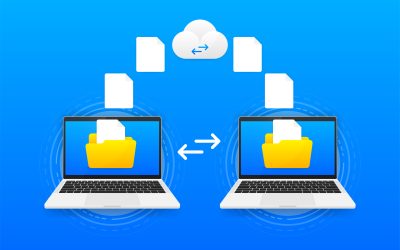The way organizations manage their records and information is crucial to their workflow, efficiency and productivity. With paper-based processes proving inefficient, time-consuming, and expensive, many organizations have accelerated the digitization of their records with the support of document conversion companies.
As more and more documents are created electronically, digital solutions are needed to manage them. “Records Management (RM) as the field of management responsible for the efficient and systematic control of the creation, receipt, maintenance, use, and disposition of records, including the processes for capturing and maintaining evidence of and information about business activities and transactions in the form of records” (ISO 15489). Electronic Records Management (ERM) refers to the application of records management principles to manage electronic files and documents.
COVID-19 put the spotlight on digitization. The pandemic led to workforces turning remote and organizations realizing the need to focus on electronic records management more than ever before. Electronic records ensure effective and prompt storage and exchange of information and official documents and helps employees maintain social distancing. For government agencies, moving to fully digital records has been made mandatory. Office of Management and Budget Memo M-19-21 issued in June 2019 requires all federal agencies to move to fully electronic records management by the end of 2022.
The top factors driving electronic records management today are as follows:
- Pandemic Driven Digital Process Requirements: The coronavirus pandemic fast-tracked the move towards digitization. Organizations needed to set up a central shared document repository to support new ways to interact in collaborative workflows. In 2021, the focus is on combining diverse tools to create a cohesive records management system that connects their internal communications and external document sharing.
- Legal and Compliance Requirements: The need to comply with laws and regulations is one of the main factors driving electronic records management. Official documents need to meet certain standards and rules. Legal and compliance requirements have become more rigorous with globalization and outsourcing. When managing electronic documents, organizations need to follow best practices and comply with laws, standards, regulations, and policies. There are laws governing different types of records such as financial and human resources, and laws for different industries with regards to records policies and procedures.
- Improved Workflow: All organizations look to improve workflow. Efficient document management supports this goal. It decreases, on-site storage costs, saves time and resources spent on filing paper documents, eliminates risks of mis-filed and lost documents, improves insight into business processes, increases accountability, streamlines and automates repeatable business tasks, increases overall efficiency, and helps managers take smart decisions. It also promotes improved responsiveness and communication among the various departments. While paper records can be accessed by only one person, electronic record systems allow several authorized users to use the same record simultaneously.
- Efficient Management of Mission-Critical Information: Electronic document management allows organizations to manage and share mission-critical documents. Important documents can be managed throughout their life cycle, from authoring and capture or scanning to review, approval, distribution and archiving. Electronic records management also eliminates risk of vital record deterioration.
- Corporate Social Responsibility: Minimizing use of paper in offices is a major component of corporate social responsibility. Using electronic purchase orders, invoices, payments, shipping notices, and other documents eliminate the paper trail. The environmental benefits of paper reduction are well-known.
- Business Continuity: Electronic record storage ensures business continuity. Records held in physical paper format are particularly prone to a range of risks such as destruction due to natural disasters, fire, flood, etc. Efficient electronic records management ensures that documents are stored securely and backed up, lessening the risk of data loss. Digital records to be recovered even if the building in which they are stored is destroyed.
Electronic document management has become increasingly complex as organizations need to manage information stored in a variety of modes such as computer, mobile devices, audio systems, databases, network servers, enterprise applications, backup and archiving devices, legacy systems, and more. Back office outsourcing companies that handle bulk document scanning and conversion can play a key role in helping businesses produce accurate and durable digital records. Advanced records management solutions balance security and compliance concerns with affordability.




